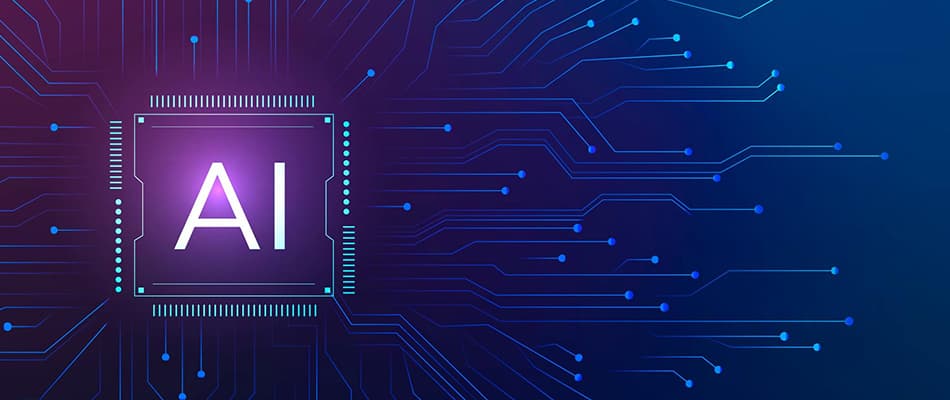What to Learn in Artificial Intelligence | Key Skills and Career Pathways
Are you considering a future in Artificial Intelligence (AI) but unsure where to begin? These days, AI is changing many industries, from healthcare and finance to marketing and entertainment. It helps businesses make better decisions, improve efficiency, and offer new services. Because of this, knowing what to learn in artificial intelligence is important for anyone looking to pursue a career in AI. The need for professionals with AI expertise has grown significantly, which makes it a promising field.
Key skills to focus on while learning artificial intelligence include machine learning, data analysis, and programming. By learning these important skills, you can prepare for a successful career in artificial intelligence. Additionally, understanding how to use AI responsibly is important.
In this article, we will discuss the essential skills you need to learn in AI and how to develop them.
What to Learn in Artificial Intelligence?
To understand what to learn in artificial intelligence, it’s essential to focus on a few main areas from the foundation of this field. Learning AI means gaining in-depth knowledge in various core subjects, starting with machine learning (ML), which enables computers to learn from data and make decisions without programming for every task. With ML, deep learning (DL) is crucial, as it uses neural networks to help computers recognise patterns and make sense of complex data, like images and speech.
Another important area is natural language processing (NLP), which focuses on how computers understand and work with human language. It is essential for applications like chatbots and voice assistants. Robotics is also essential, as it combines AI with engineering to create machines that can perform tasks in the real world.
When considering what to learn in artificial intelligence, it is important to focus on both theoretical knowledge and practical skills. This includes understanding algorithms and using tools like TensorFlow and PyTorch to develop AI models. AI combines knowledge from different subjects, such as computer science, mathematics, and cognitive science. These areas help you understand how to create innovative systems.
Read our blog on how to start a career in artificial intelligence here.
Foundations of Artificial Intelligence
When understanding what to learn in artificial intelligence, you must know that AI is built on several foundational principles that guide how machines can perform tasks that usually need human intelligence. These principles include logic, probability, and algorithms. They guide how AI systems make decisions and learn from information. It’s important to understand statistical models and computer theories to work with AI because it uses data analysis to get better results.
To learn artificial intelligence, one must focus on the following topics:
- Probability Theory and Statistics: These topics help you understand how likely events are and how to analyse data.
- Linear Algebra and Calculus: These are important areas of maths for understanding how AI models work.
- Data Structures and Algorithms: These help to understand how to organise and process data to build AI programmes.
- Search Algorithms and Optimisation Techniques: These topics help to find the best solutions to problems quickly.
Core Artificial Intelligence Concepts
Artificial Intelligence relies on several key concepts that shape how it works. The prior knowledge of these concepts will help you develop AI systems that can solve complex problems, automate tasks, and create intelligent agents that learn and adapt. You can understand what to learn in artificial intelligence by understanding the following core concepts.
- Machine Learning (ML): This is the process of training systems to learn from data. It includes supervised, unsupervised, and reinforcement learning.
- Deep Learning (DL): A branch of ML that uses neural networks to mimic human decision-making.
- Natural Language Processing (NLP): This allows machines to understand and generate human language.
- Computer Vision: This field focuses on how machines interpret and process visual data.
Read our Blog on How Can I Learn Artificial Intelligence and Explore AI Education and Career Paths.
Types of Artificial Intelligence Algorithms
AI relies on different algorithms, each playing a specific role in solving tasks. Understanding these algorithms is essential for anyone looking to work in AI, as it provides a foundation for selecting suitable approaches to solve specific problems.
The following are some of the major types of Artificial Intelligence Algorithms:
- Decision Trees: These algorithms help with classification and regression tasks. They provide clear decisions based on input data, making it easy to understand how conclusions are reached.
- Support Vector Machines (SVMs): SVMs are great for classification tasks, especially when there are clear boundaries between different classes of data. They help in separating data points effectively.
- Neural Networks: These are the core of deep learning. They mimic how the human brain works to recognise patterns and make predictions. This allows machines to learn from complex data.
- Genetic Algorithms: Inspired by natural selection, these algorithms are used for optimisation and search problems. They help find the best solutions by evolving over time. Learning about these algorithms will teach you what to learn in artificial intelligence.
- K Nearest Neighbors (KNN): KNN categorises data points based on their similarity to other points. It looks at the ‘k’ closest data points in the feature space. When a new data point needs to be classified, KNN checks the classes of its nearest neighbours. The most common class among those neighbours is assigned to the new point.
Artificial Intelligence Tools and Frameworks
When considering what to learn in artificial intelligence, understanding prominent tools will help you develop and apply AI solutions to projects. Developing AI requires reliable tools and frameworks to work with data, build algorithms, and deploy systems.
Here are some significant AI tools and frameworks:
- TensorFlow: Google uses an open-source framework. It’s widely used for machine learning and deep learning tasks, allowing developers to create powerful AI models.
- PyTorch: Created by Facebook, this framework is known for being user-friendly and flexible. It’s excellent for both research and production in AI.
- Keras: A simple tool for building neural networks. It’s integrated with TensorFlow to make model development easier.
- Scikit-learn: A well-known library for machine learning. It helps implement algorithms like classification, regression, and clustering.
Explore Why Study Artificial Intelligence? Here, you will learn about Career Growth & Job Opportunities in AI!
Ethics and Bias in Artificial Intelligence Systems
While finding what to learn in artificial intelligence, it’s essential to understand ethics to make sure AI is fair and balanced. AI systems can sometimes create biassed results if they are trained on unfair data. This can lead to unequal or harmful decisions.
Some of the essential points to understand ethics and bias in Artificial Intelligence are mentioned below:
- We must avoid inserting biassed data that can cause AI to make wrong or unfair choices.
- AI systems should be designed in a way that respects fairness and human rights.
- AI systems must be easily explained and held accountable, especially in sensitive fields like healthcare or criminal justice.
Applications of AI and Its Use Cases
Knowing what to learn in artificial intelligence will help you explore the wide range of opportunities in AI. Nowadays, Artificial intelligence is used across different industries. It helps to improve processes and provide fast and better services.
Some of the suitable examples include the following sectors:
- Healthcare: AI helps diagnose diseases and create personalised treatments for patients.
- Finance: It is used to detect fraud and make quick decisions in trading.
- Retail: Artificial Intelligence helps predict customer behaviour and manage inventory in a better way.
- Manufacturing: AI-powered robots and automation systems improve production.
Artificial Intelligence Certifications and Career Paths
If you’re considering starting a career in AI, getting the right certification is the first step. Among the many options, Digital Regenesys offers an Artificial Intelligence Course with a globally recognised certificate. This course provides the essential knowledge and skills in AI and helps you understand what to learn in artificial intelligence to build a successful career.
After completing an AI certification course, you can pursue several career options. The following are some of the roles you can explore:
- AI Engineer: Design and build AI systems to solve human problems.
- Data Scientist: Analyse large data sets to help businesses make better decisions.
- Machine Learning Engineer: Focus on creating algorithms that allow systems to learn and improve on their own.
- NLP Specialist: Work with natural language processing to help machines understand human language.
- Robotics Engineer: Develop smart machines that can perform tasks independently.
By pursuing these career paths, you can apply your AI knowledge to many industries and make a significant impact on innovation and technology.
Learn Artificial Intelligence with Digital Regenesys
At Digital Regenesys, you can gain in-depth knowledge in AI through a certification course in Artificial intelligence. This course is prepared to provide you with essential skills and practical applications in artificial intelligence.
Benefits of learning AI at Digital Regenesys:
- The certification offered by Digital Regenesys is globally recognised, helping you stand out in the job competitions.
- With Digital Regenesys, you can learn from anywhere in the world and get feedback on live classes.
- You will learn practical skills by working with standard AI tools and frameworks. Here, you learn to apply your knowledge in real scenarios.
- The course is taught by experienced professionals who provide expert guidance and insights into the latest trends and developments in AI.
In conclusion,artificial intelligence is an expanding field that offers exciting opportunities for those who are ready to learn and grow. By mastering essential skills like machine learning, data analysis, and programming, you can pursue a successful career in a wide range of industries. Understanding what to learn in artificial intelligence is the first step towards building a career. From healthcare to finance, AI is revolutionising how we solve problems and make decisions. With the right knowledge and training, such as the certification offered by Digital Regenesys, you can play a significant role in shaping the future of AI.
Visit Digital Regenesys and explore its online certification courses to build skills to have a bright and successful career.
FAQs on What to Learn in Artificial Intelligence
What are the key skills required to learn AI?
You need an in-depth understanding of mathematics, programming, and machine learning concepts.
What is needed for artificial intelligence?
To get started in artificial intelligence, you’ll need an understanding of mathematics (especially algebra and statistics), programming (Python is commonly used), and machine learning principles. Additionally, knowledge of AI tools and frameworks like TensorFlow and PyTorch is essential.
Can I learn AI without a computer science background?
Yes, but you will need to start with basic programming and mathematics before moving on to more advanced AI topics.
What programming languages are most commonly used in AI?
Python is the most popular language for AI, followed by R and Java.
How long does it take to become proficient in AI?
It depends on your background and learning pace, but most people can gain a solid foundation in AI within six months to a year.
Why is ethics important in AI?
Ethics ensure that AI systems are fair and transparent and do not cause harm or perpetuate bias.














